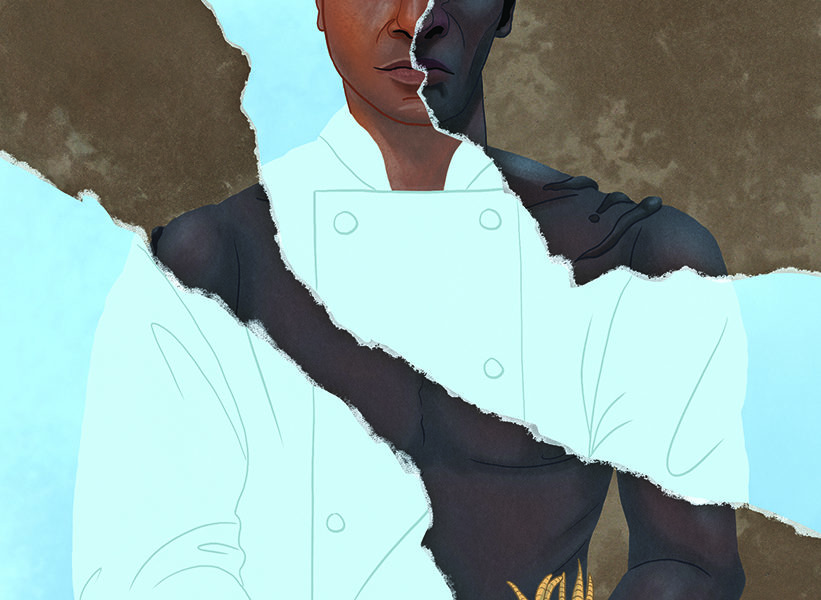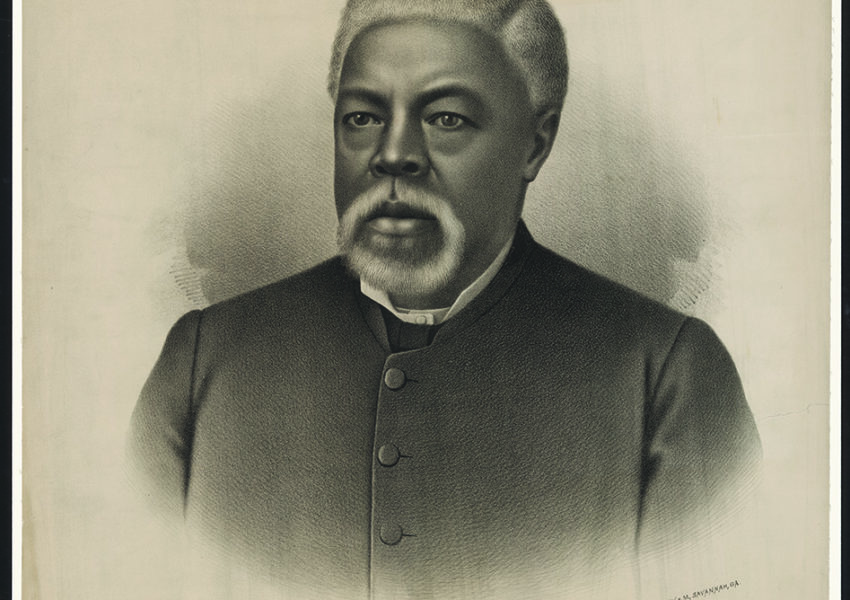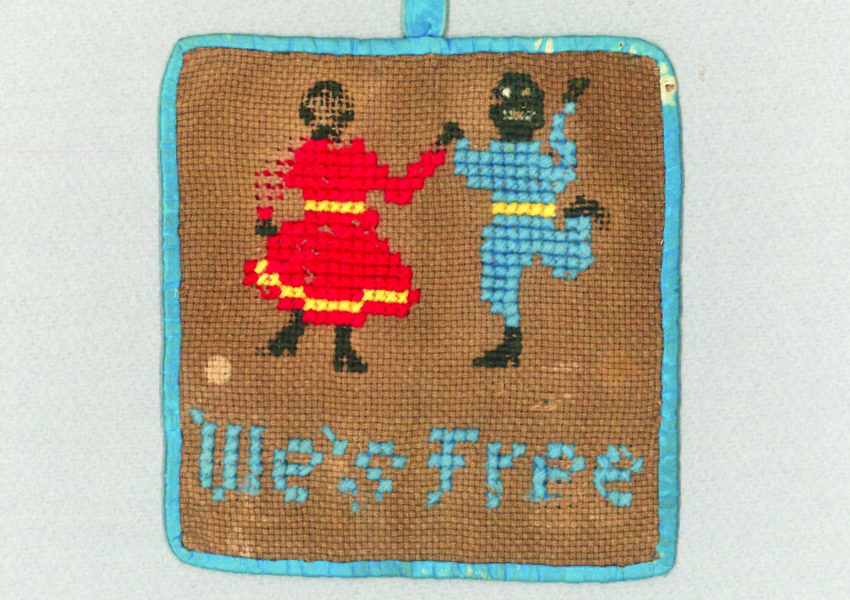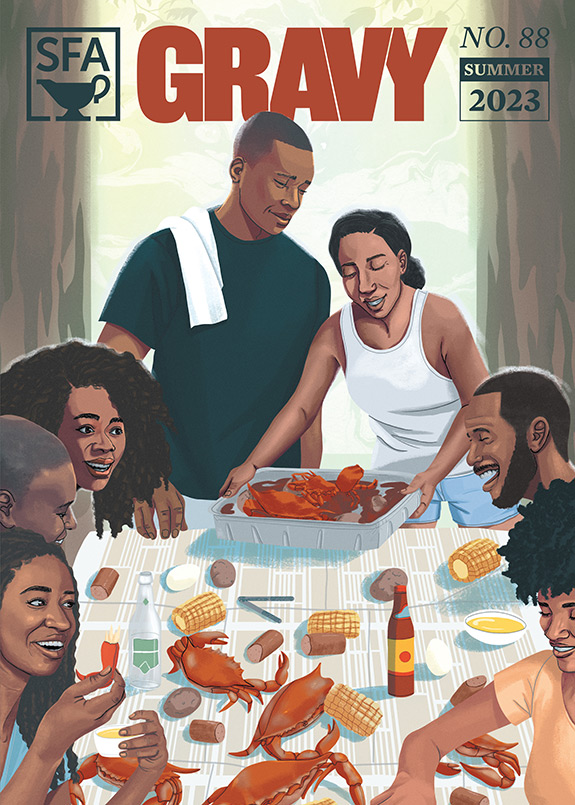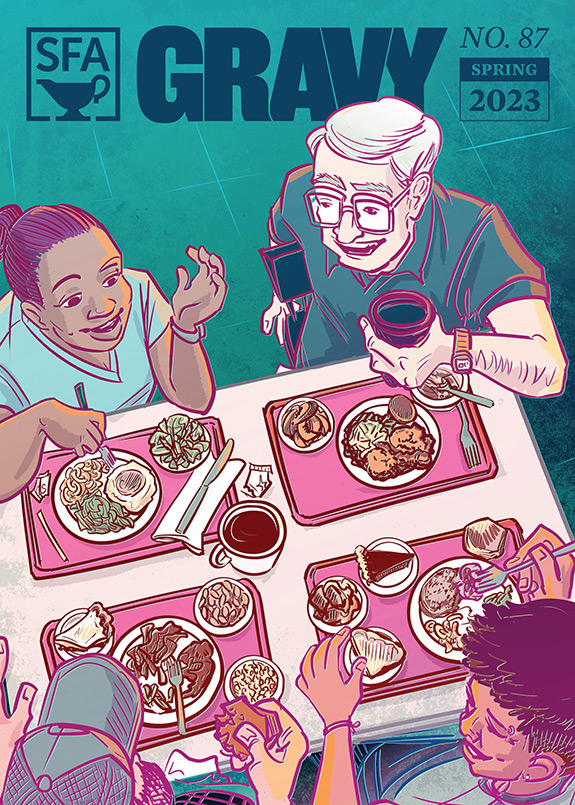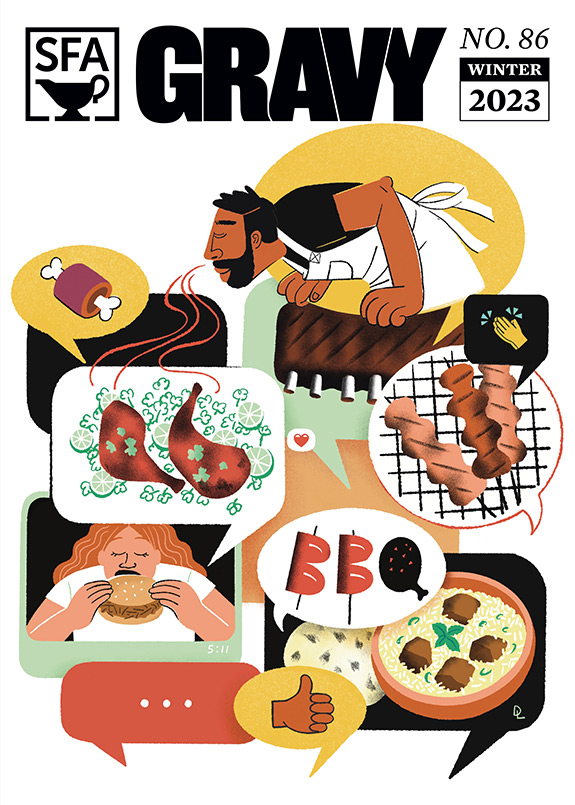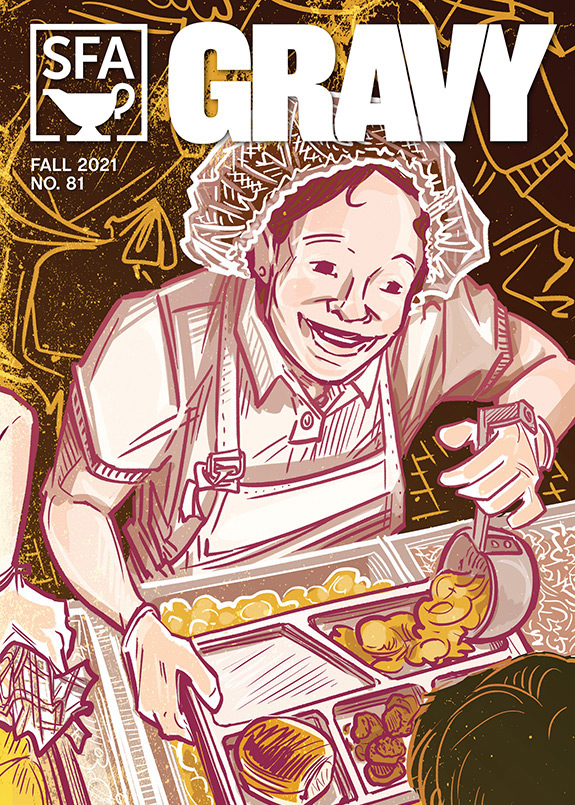
Kevin Mitchell, a chef and culinary instructor from Charleston, South Carolina, earned his Southern Studies MA from the University of Mississippi this spring. SFA foodways professor Catarina Passidomo advised Mitchell’s thesis, “From Black Hands to White Mouths.” Here, a peek into his research.
Catarina Passidomo: You trace the lineage of black chefs and caterers in Charleston back to the early nineteenth century. Discuss the importance of professional cooking for enslaved and free people of color during the antebellum period in Charleston.
Kevin Mitchell: A lot of professions were closed off to blacks. And the professions that were seen as more feminine—cooking and cleaning and sewing—were the things that were left open to blacks. That particular lineage is important to me because it allows me to see where I came from.
CP: You highlight the ways in which some black cooks used cooking as an avenue to their freedom. But there are complexities, too. Can you talk about Sally Seymour, a free woman of color who ran a catering business and owned slaves?
KM: I discovered that because of the labor market in Charleston at that particular time, those were the only people available to her. Someone like Sally Seymour who would become free and open up her own restaurant or pastry shop, of course, needed laborers. She needed people to help her run that shop. And so someone like her was able to, in a sense, reap those economic benefits to having slave labor. Hopefully, some of those slaves would have been able to purchase their freedom and go on to open shops of their own.
CP: Another interesting component of your work is the use of sales ads for enslaved cooks. Can you tell me about these ads, how you found them, and what you learned?
KM: The ads were given to me by David Shields [of the University of South Carolina]. These ads are interesting because not only are they looking for specific levels of skilled cooks, these skilled cooks were of course enslaved. Just the fact of an ad being published in a newspaper for the sale of a human body…. I was able to go through the ads and see those levels of cooks and understand the amount of skill that each one of them had. There was a French cook, a complete cook, and a pastry cook. So I was trying to decipher which were the most valuable to their slaveholders and why. Those three types of cooks were highly sought after by the slaveholders. Being able to have these particular cooks gave the slaveholder a certain status, especially when they entertained guests.
Through my research, it seems like the pastry cook was the most valued and the most skilled, because they not only dealt with the sweet things, but they had to know the savory side as well. They also seemed to be the ones who trained other cooks behind them.


